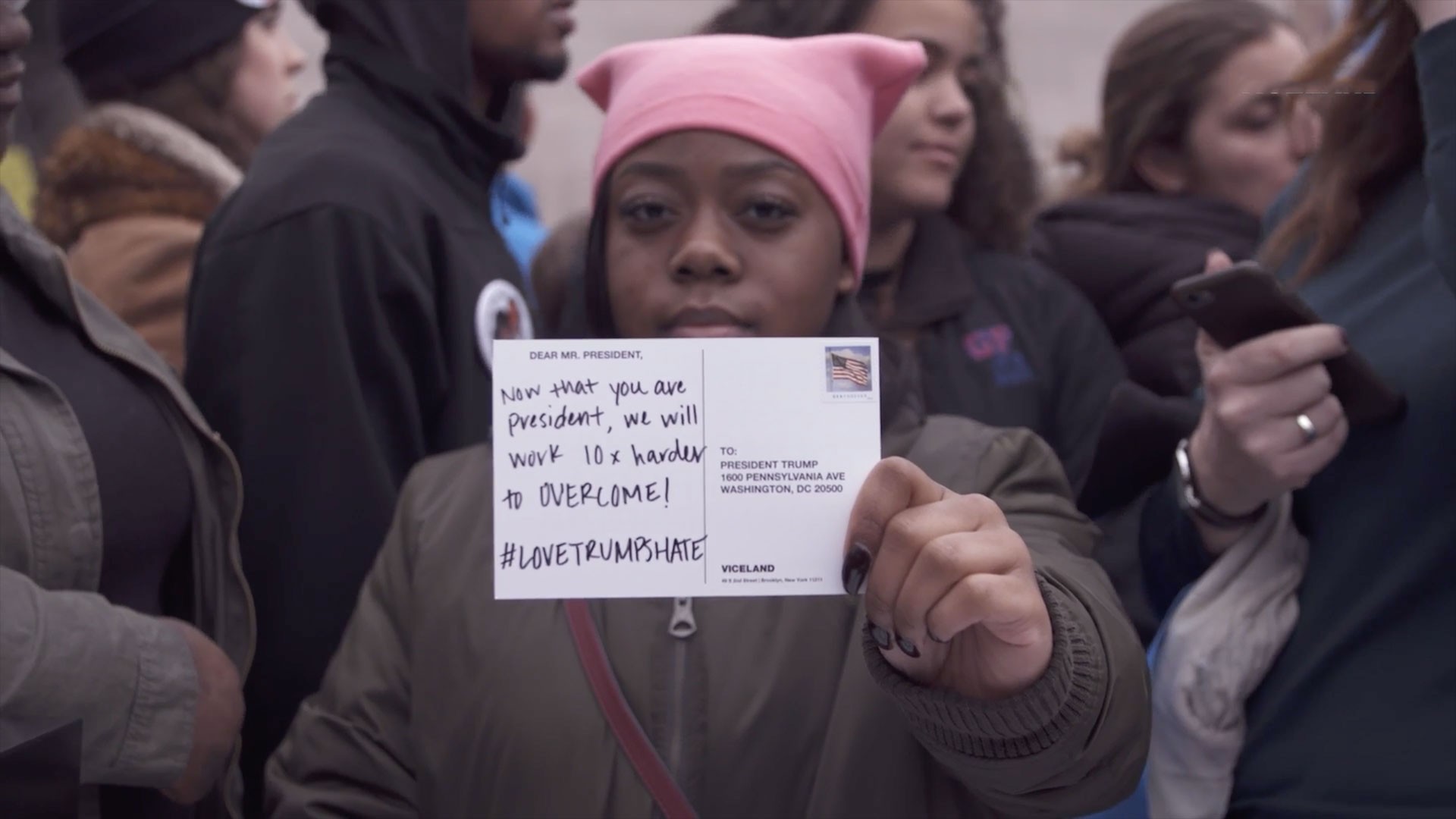“This means their perspective as they legislate for our country is different from the average American,” said Gram.She and her co-founder Isabel Kaplan decided it was time for a radical change after the 2016 election.When women legislate, they legislate differently. They bring money back to their district, there’s more collaboration across the aisle, and a focus on issues for women and families.
Watch some more video on VICE:

“I grew up very into politics,” said Kaplan. “My mom was the first woman to run a presidential campaign. I knew a great deal about women in politics, and I had faith in progress.”She was involved with Hillary Clinton’s campaign, and she was one of the many blindsided by Donald Trump’s shocking victory.“The election was a wake-up call, and it forced me to look critically at the progress I assumed was happening,” said Kaplan. “I realized we needed to do something radical. Playing nice wasn’t getting us anywhere.”
“The more I looked into these aunts of mine, the more I was willing to make personal sacrifices,” said Gram. “These sisters were imprisoned, and went on hunger strikes.”Betty Gram Swing was imprisoned five times and went on five hunger strikes. Her sister Alice Gram was so ill after the so-called Night of Terror -- during which women activists were imprisoned, tortured and abused while seeking the right to vote -- that she was unable to engage as intensely in subsequent years.“I know from stories I’ve heard that when she passed away she was dismayed with how little progress we had made,” said Gram.When Betty and Alice were fighting a century ago, there was a schism in the women’s suffrage movement. There was the old guard, which advocated for gradual, state-by-state change, and then there was the National Woman’s Party) led by Alice Paul.“This was a new guard of radical, younger, impatient women who didn’t think state-by-state would affect change fast enough. They wanted to shake things up and move the political system faster,” explained Gram. “That’s where we are today. If you look at a simple statistical analysis of the rate at which women’s representation government has increased, it could be another 100 years before we achieve equality. Project 100 is a rallying cry from a more radical approach of how we can expedite progress in our country.”The election was a wake-up call, and it forced me to look critically at the progress I assumed was happening,
Fueled by the energy of past generations, Gram and Kaplan teamed up with technological innovators like Eduardo Ortiz, Eric Hysen, and Victor Garcia to form Project 100, which gives progressive women candidates a platform. They are non-partisan, but they also won’t support any candidate just because she’s a woman. Democrat, Independent, or Republican, her values have to align with their three main priorities: equal treatment under the law, economic opportunity, and healthy people and communities.These values also serve as a road map for voters to find candidates whose message resonates. Through user-friendly software, Project 100 uses geolocation to help users find candidates near them, and algorithms that allow voters to search for candidates based on issues that matter to them.Money is a major factor in the initial viability of a campaign, but Project 100 acknowledges that it’s not the only factor.“Our trending algorithm was designed to acknowledge those candidates raising the most money,” said Kaplan, “but also those getting Twitter followers or media hits. A lack of access to capital is a major barrier keeping women out of politics, but we know it’s not just about money.”This platform has proven critical for women, especially those running for office for the first time, like Mary Matiella, who is running for the House of Representatives in Arizona. Matiella, a daughter of migrant farm workers, is looking to be the first Latina elected to Congress in Arizona. As a political appointee under Obama and a military wife, she has been serving this country for 35 years. But as she seeks elected office for the first time, funding is a major obstacle.It could be another 100 years before we achieve equality. Project 100 is a rallying cry from a more radical approach of how we can expedite progress in our country.
“The funding usually flows to the person people know, the people who have run before,” Matiella otld VICE Impact. “I’ve gotten a lot of encouragement, but unfortunately the money wasn’t as free-flowing.”Project 100 helped by making Matiella more visible to interested voters across the country, who can back her for Congress even if she isn’t in their district.A lack of access to capital is a major barrier keeping women out of politics, but we know it’s not just about money.